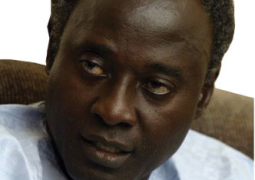The Ministry of Health and Social Welfare with support from UNICEF recently reviewed the draft National Sanitation Policy at a day long forum held at the Paradise Suites Hotel in Kololi.
Speaking on the occasion, Samba Conteh, Chief Public Health Officer, said that significant strides have been made in The Gambia in the provision of safe drinking water and improvement of basic sanitation, particular in the rural areas where sanitation is most critical. Despite, a lot still remains to be done in the areas of solid waste and sewage management, urban drainage as well as the adoption of basic sanitation and hygienic practices at the personal and household levels.
He referred to a declaration, according to which approximately 580 million people or more than 60% of
Mr Conteh pointed out that the draft national sanitation policy was prepared to comply with the declaration, and is based on a comprehensive situational analysis of sanitation in The Gambia. The ultimate goal is to give a more coherent direction based on strategies supporting a coordinated management as well as appropriate technological approaches towards more efficiency service delivery. He added that the policy would also help in utilizing and channelling resources more efficiently.
Momodou K Cham representing the National Planning Commission declared that every individual has the right to access clean water, a right to food, shelter and good sanitation and to the protection of his or her fundamental human rights. Provision of adequate sanitation and hygiene in the community is an attempt to safeguard these rights, he added. Every individual should be entitled to a minimum of 25 liters of safe water per day free of charge, Mr. Cham said, and that a financing mechanism be developed to ensure the protection of these rights since sanitation is a cross-cutting issue.





